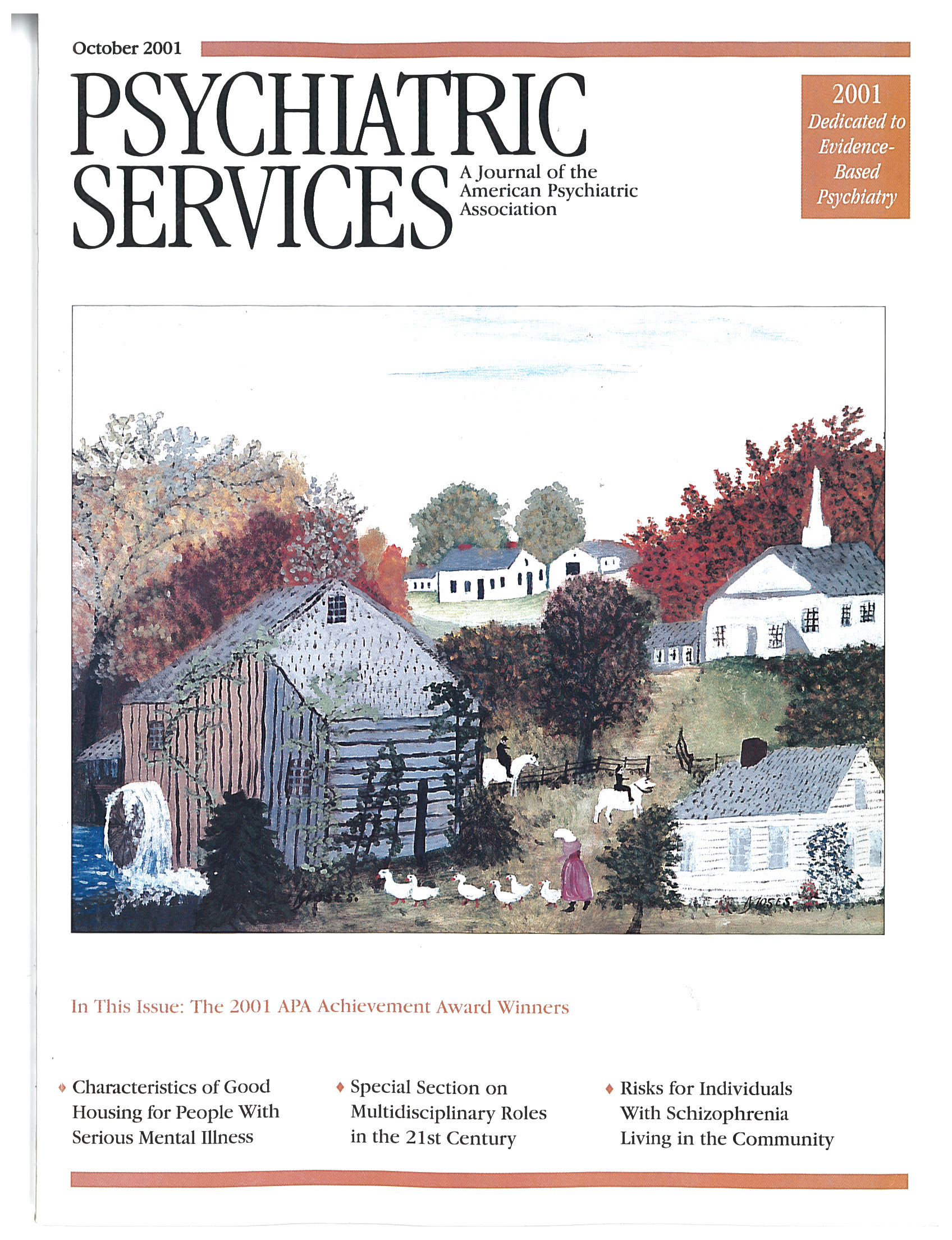Multidisciplinary Roles in the 21st Century
Every October the American Psychiatric Association holds the Institute on Psychiatric Services, its annual fall meeting for clinicians. The theme for this year's institute is "Multidisciplinary Roles in the 21st Century." A special section in this month's issue highlights the efforts of multidisciplinary teams in the delivery of contemporary psychiatric services. Featured in this section is a case presentation and discussion about "Sam," a challenging patient who has not responded to intensive community-based treatment. The discussion highlights the importance of a multidisciplinary approach to service delivery. Case discussants are a state mental health commissioner and seven other mental health professionals representing six disciplines (see page 1318). In the second article in the special section, Robert Paul Liberman, M.D., and his colleagues describe the broad array of competencies that the various members of the multidisciplinary team bring to the task of psychiatric rehabilitation (see page 1331). Thousands of prison inmates with mental disorders receive treatment while incarcerated. Kenneth L. Appelbaum, M.D., and associates discuss the role of correctional officers on prison treatment teams, a topic that has received little attention (see page 1343). Schools are the primary site for the delivery of mental health services to children and adolescents. Mark D. Weist, Ph.D., and his coauthors describe the growing movement to expand school mental health programs by creating multidisciplinary partnerships between professionals in the school system, the mental health system, and the public health system (see page 1348). Because the multidisciplinary team is so important in all treatment settings, it must develop mechanisms to improve its effectiveness. Christopher G. Fichtner, M.D., and his colleagues describe a self-assessment training program for multidisciplinary mental health teams (see page 1352).
Achievement Award Winners
Five outstanding mental health programs are recipients of the American Psychiatric Association's 2001 Achievement Awards, which are being presented this month at the Institute on Psychiatric Services in Orlando, Florida. Gold Awards are being presented to the Thresholds, State, County Collaborative Jail Linkage Project in Chicago (see page 1380) and to the START program of the Community Research Foundation in San Diego (see page 1383). Three programs are receiving Significant Achievement Awards. They are the Baltimore Capitation Project of Baltimore Mental Health Systems, Inc.; the mental health division of the Community-University Health Care Center in Minneapolis; and the Multnomah County, Oregon, Early Childhood Mental Health Program (see page 1386).
Housing Features and the Evidence Base
This month's contribution to the journal's continuing series on evidence-based practices reviews empirical research on the features of housing and neighborhoods that are associated with good outcomes for people with serious mental illness. Sandra J. Newman, Ph.D., reviews 32 studies that examined the relationship between an individual's psychological well-being and the physical conditions of the dwelling unit or the quality of the neighborhood. She describes several approaches used in these studies and some of their methodological weaknesses, and she concludes that no set of theories appears to be guiding this work. Dr. Newman calls for a coherent research agenda and recommends ways to correct research mistakes of the past 25 years (see page 1309).
Abuses of Law and Psychiatry in China
In this month's Law & Psychiatry column, Paul S. Appelbaum, M.D., addresses allegations about the systematic misuse of psychiatry for political purposes in China, as recently cataloged by the former director of the Hong Kong office of Human Rights Watch. Since the 1950s the political use of psychiatry has passed through three stages in China, including the denial of mental illness during the 1960s, the decade of the Cultural Revolution, when people with serious mental illnesses were taken from psychiatric hospitals and incarcerated in labor camps and prisons. Dr. Appelbaum describes how Chinese authorities and forensic psychiatrists currently misuse psychiatric diagnoses to confine political dissidents in psychiatric facilities (see page 1297).
Briefly Noted
• In the Personal Accounts column, Mona Wasow, M.S.W., describes how her mentally ill son's life dramatically improved when his treatment providers began to focus on his strengths rather than on his deficits (see page 1307).
• John S. Brekke, Ph.D., and his colleagues found that nearly 40 percent of a sample of Los Angeles residents with schizophrenia were victims of a crime during a three-year period (see page 1358).
• The books section features treatment of chronic conditions (see page 1398).

